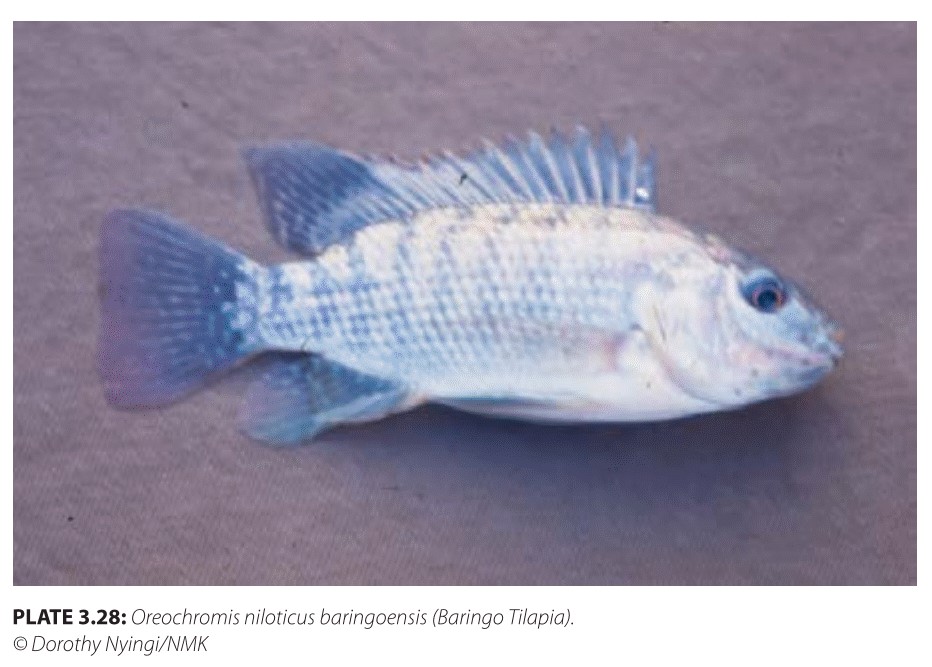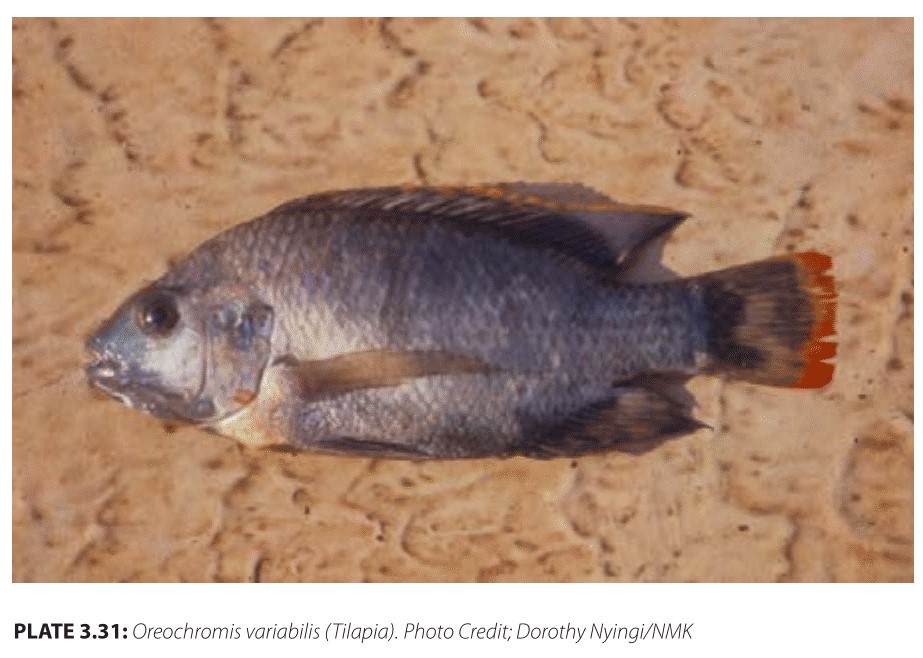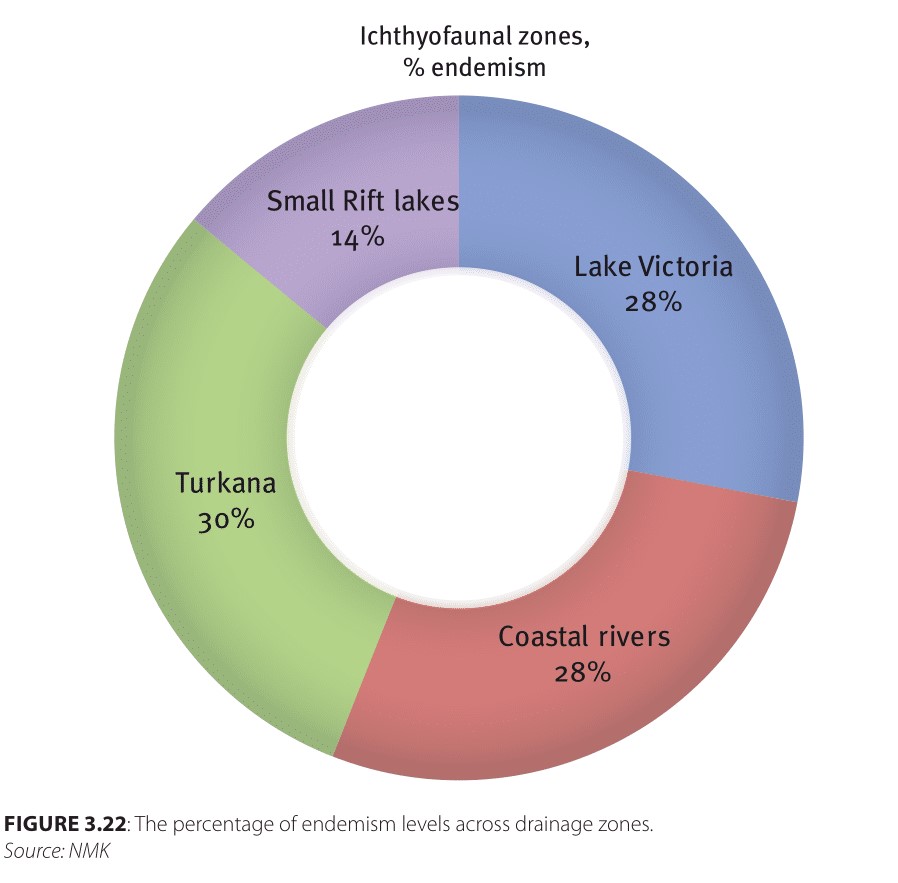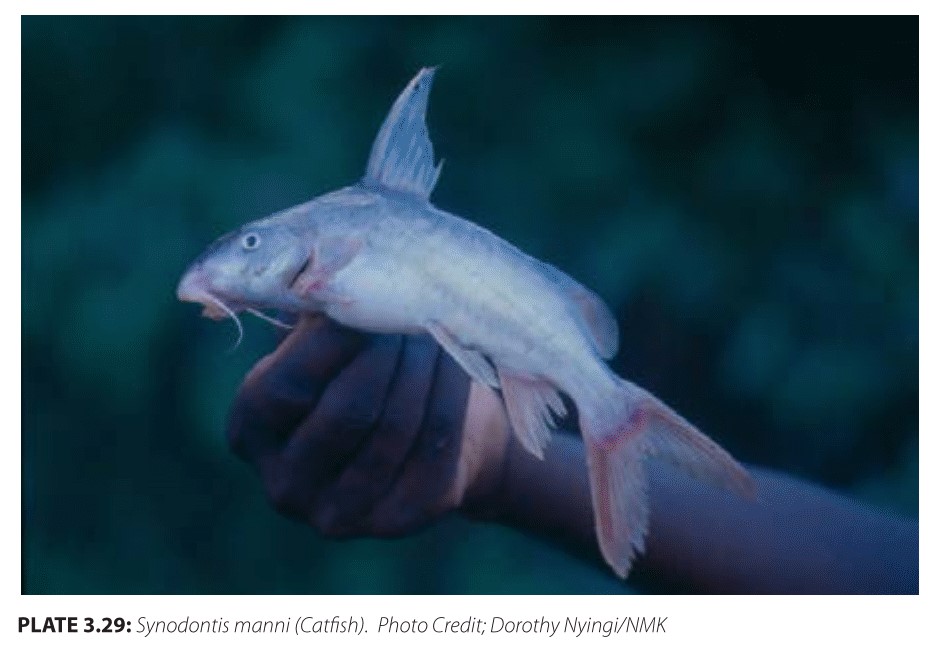
The Value of Fish
Fish play a fundamental role in the productivity and ecology of freshwater and marine ecosystems. They make up a large portion of the herbivore and carnivore sections of the foodweb, supported by primary producers: plants. Fish have been a mainstay of many traditional fishing communities along the coast and around Kenya’s major lakes and rivers. In recent decades commercial fisheries and fish farms have supplied both the domestic and export markets. The fish industry produces some 150 000 metric tonnes annually and accounts for 5 per cent of Kenya’s GDP. Fish-oil is increasingly marketed as a heath supplement because of its high Omega-3 content. Economically important freshwater fish include tilapia, nile perch and catfish. Economically important marine species include demersals, pelagic bony fish, sharks and rays.

Fish
To date 206 species of fish have been catalogued from Kenyan fresh waters, and a further 18 have been introduced. The distribution of fish in Kenya’s drainage systems is determined by the size of the aquatic basin, diversity of aquatic habitats, ability of fish to disperse, temperature, food availability, depth and water movement. Swamps and river habitats are also crucial dryland biodiversity conservation centres. Kenya is known for its high endemism of freshwater fishes, totalling 36 in all.



